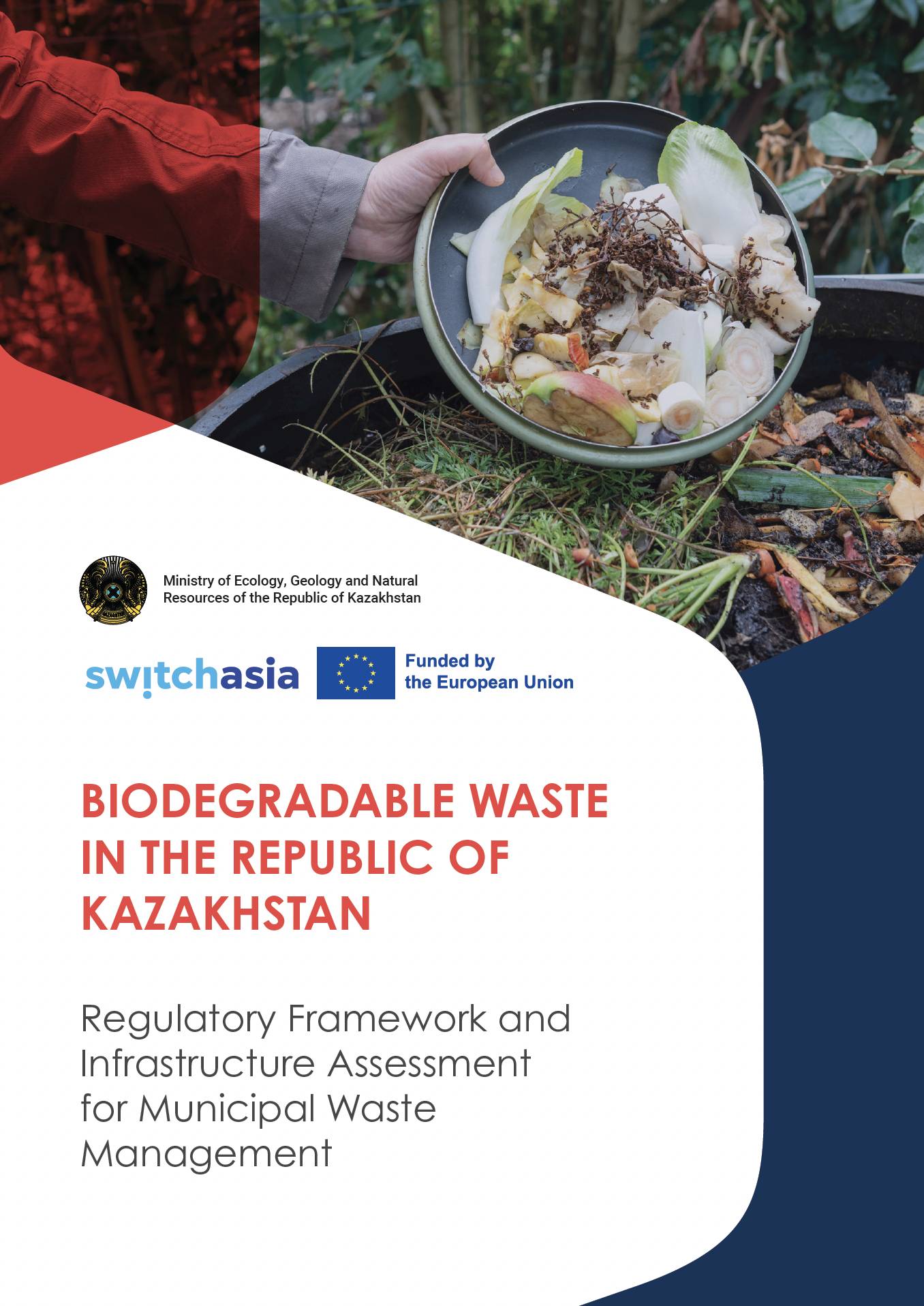
This report provides an overview of the current situation in biodegradable waste management (BDW) in the Republic of Kazakhstan, and considers the opportunities for the development of a Circular Economy (CE) while incorporating the principles of Sustainable Production and Consumption (SCP). The policy and institutional framework of Kazakhstan (Strategies/Concepts, programs, regulations, government projects, experience, and financial instruments) were reviewed as the basis for this report, the main indicators on volumes and types of BDW are provided, and generalized recommendations are presented for the necessary components of a waste management system. BWM systems were chosen because of the impact of waste on the environment, including greenhouse gas emissions (GHG), and the criticality of the current situation and their absence of proper management. This report sets out recommendations as per SCP Principles, the CE, and the EU Farm to Fork strategy, all of which are aimed at improving the waste management system in Kazakhstan and developing a society with a responsible approach to consumption. The National Legislation defines biodegradable waste as waste that is capable of undergoing anaerobic or aerobic decomposition, including waste from gardens, parks, food and cooking, along with food industry waste and waste paper. Within the framework of this report, we will also consider agricultural waste and sludge from sewage treatment plants as BDW, since such waste can also be biodegraded.


